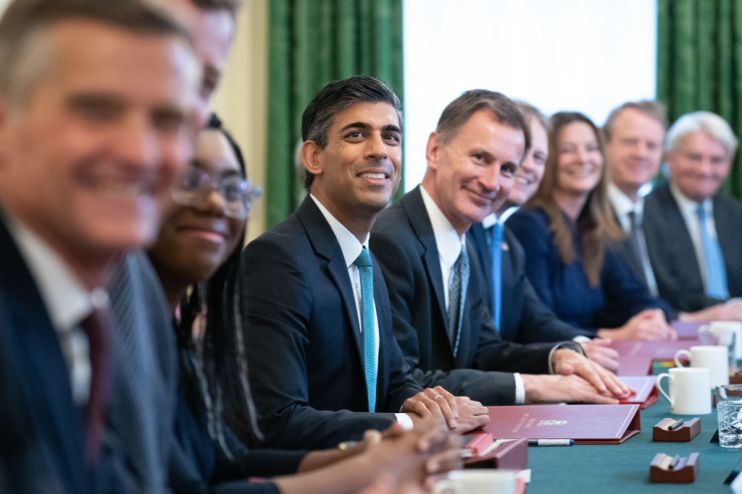Rishi Sunak and Jeremy Hunt urged to raise investment to unlock £150bn economic boost

Rishi Sunak and Jeremy Hunt should ramp up government investment spending to unlock a £149bn boost to the UK economy, an influential think tank has urged today.
Spending on quality capital projects like expanding renewable energy infrastructure and improving transport networks could “pay for itself” by yielding tens of billions of pounds in growth and tax revenues, according to a report by the Institute for Public Policy Research (IPPR).
Harnessing the government’s capacity to borrow from international investors to raise cash to channel into the economy may “unlock industries of the future, spur technological advances, and thus boost growth,” the report argued.
Fiscal hawks have said stepping up capital expenditure risks the Prime Minister and Chancellor missing their fiscal rules – getting debt as a share of the economy down and the deficit falling in five years.
Britain’s debt pile is already larger than the size of the entire economy at around £2.5 trillion, swelled by the government borrowing hundreds of billions of pounds to pay for Covid-19 support. Debt interest spending is also on track to top £100bn for a number of years.
But, according to the IPPR, an annual £30bn boost to public investment would actually skim the debt pile.
“The GDP growth benefits can still ensure alignment with falling debt to GDP ratio,” Carsten Jung, senior economist at the IPPR and author of the report, said.
“A government could borrow to invest, and thereby grow the economy more than the associated rise in debt,” he added.
Labour recently rolled back their commitment to inject £28bn annually into the economy via lifting green energy investment, delaying the spending boost to the second half of their term should they win the next election.
The party was contacted for comment.
UK public and private investment has been steadily falling since the 1980s. That decline has accelerated since the Brexit vote in 2016. As a share of GDP, investment is among the lowest levels in the Organisation for Economic Cooperation and Development.
Jung took aim at the UK’s fiscal rules for being overly prescriptive and preventing governments from delivering long-lasting economic benefits.
The present regime “puts all the emphasis on debt to GDP within a five year horizon… and thus ignores larger benefits that are further out than this,” he said. Similar criticisms have been made by other think tanks, including the National Institute of Economic and Social Research.
Free-market economists have argued that governments can “crowd out” private businesses from expanding by borrowing cash on financial markets to invest.
Crowding out is a process by which the government raises market interest rates by issuing more debt, which can make it unaffordable for some private firms to source money.
Left-leaning economists claim governments can utilise their enormous balance sheets to take on debt to invest, thereby creating new industries that stimulate innovation and economic growth.
A treasury spokesperson told City A.M.: “Despite the tough decisions we’ve taken to stabilise the public finances, we are maintaining record levels of capital investment with £600bn over the next five years – investing in critical infrastructure like Northern Powerhouse Rail, HS2 and Sizewell C.”